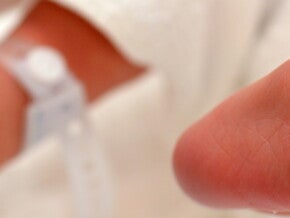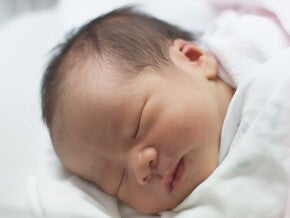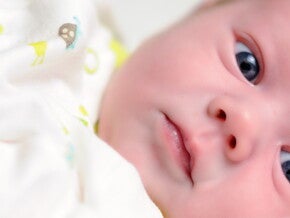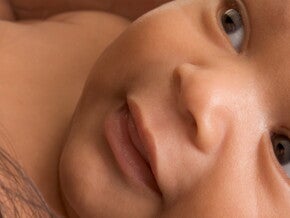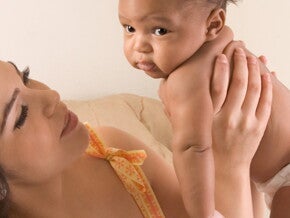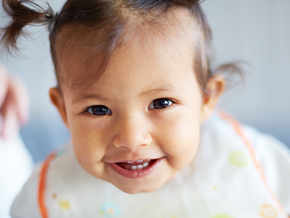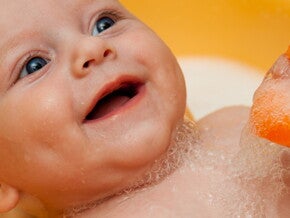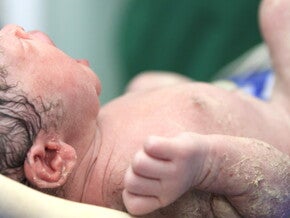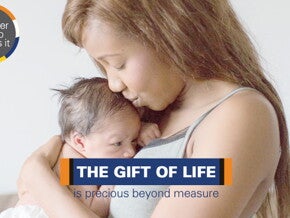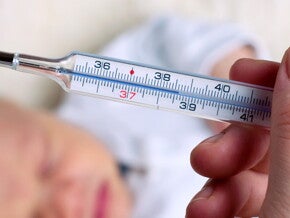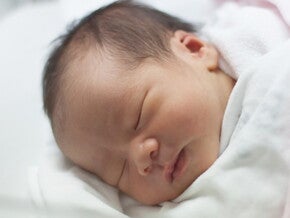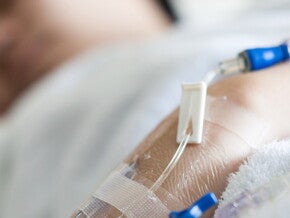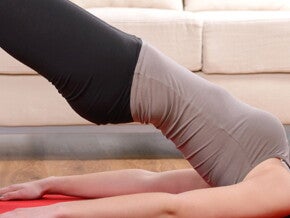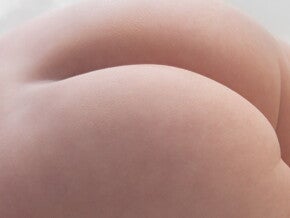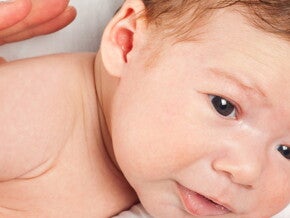
Phototherapy treatment
- The baby is placed under lights for a few days until the bilirubin level in the blood drops.
- Jaundice makes the baby lethargic, so she must be woken for feeds.
- The nurse will take daily blood samples by pricking the baby’s heel, to test the level of jaundice.
- Home phototherapy with Bili bed.
Breast milk jaundice
This is a rare, but harmless, condition and does not require treatment – continue breastfeeding.
Consult your doctor if jaundice persists for longer than two weeks. The doctor will conduct tests and is unlikely to stop you breastfeeding.
Rhesus disease
Your blood type may be Rh-negative and your baby’s Rh-positive. If some of your baby’s blood passes into your bloodstream, antibodies will form.
During a subsequent pregnancy, these antibodies may cross from the placenta to the baby’s circulation and begin destroying the baby’s red blood cells. The baby will be jaundiced and anaemic. This can be prevented by testing the baby’s blood immediately after birth and if it is Rh-positive, injecting you with anti-Rh antibodies.
Umbilical cord
The clamping and cutting of the umbilical cord after birth does not hurt the baby at all. The remaining cord stump normally falls off within 5–10 days.
- Clean the cord and base with surgical spirits at every nappy change and after the baby’s bath.
- Don’t cover the cord with a nappy or a bandage.
- If you notice a discharge or excessive redness in the surrounding area, consult your doctor or clinic sister.
Umbilical hernias
Umbilical hernias are soft, skin-covered protrusions of the intestines as a result of a weakness in the abdominal wall around the umbilicus. Some close spontaneously within 1–2 years, while the larger ones may require
surgery.They are common, especially in premature babies. Most disappear before two years. At the age of four, if necessary, an operation may be performed for cosmetic reasons.
Circumcision
The surgical removal of the foreskin covering the tip of the penis may be carried out for religious or cultural reasons. Doctors argue that it is quite easy to keep a normal foreskin clean and free from infection, so it is not necessary for hygienic reasons.
- The decision to circumcise your son is a personal one.
- A circumcision will leave the area red and tender for a few days.
- Follow the special care recommended by the doctor or rabbi who performs the procedure.
- Inform the doctor if there is bleeding or discharge, which may indicate infection, or if the head of the penis becomes bluish.
Uncircumcised foreskin
The foreskin of an uncircumcised baby does not usually retract. Do not force it back; it gradually becomes loose when the child is between three and five years old.
To learn more about what to expect in the first few days of your newborn’s life, consult a caregiver or local clinic. For more information on how to register your little miracle, click here.
Undescended testes
Undescended testes or cryptorchidism represent the failure of the testes to ‘descend’ from an abdominal position during foetal development. It is associated with reduced fertility and increased tumours. Although undescended testes nearly always refer to maldescent, a testes can occasionally ‘re-ascend’ or move back up. This is referred to as retractile testes and usually has no complications or consequences.
Three to ten percent of babies have undescended testes at birth. Most testes will descend by the time the baby is a year old. If not, the doctor can operate at 2 or 3 years of age. Do not confuse retractile testes – because of cold hands – with undescended testes.
Consult your healthcare professional if you are in any way concerned.
